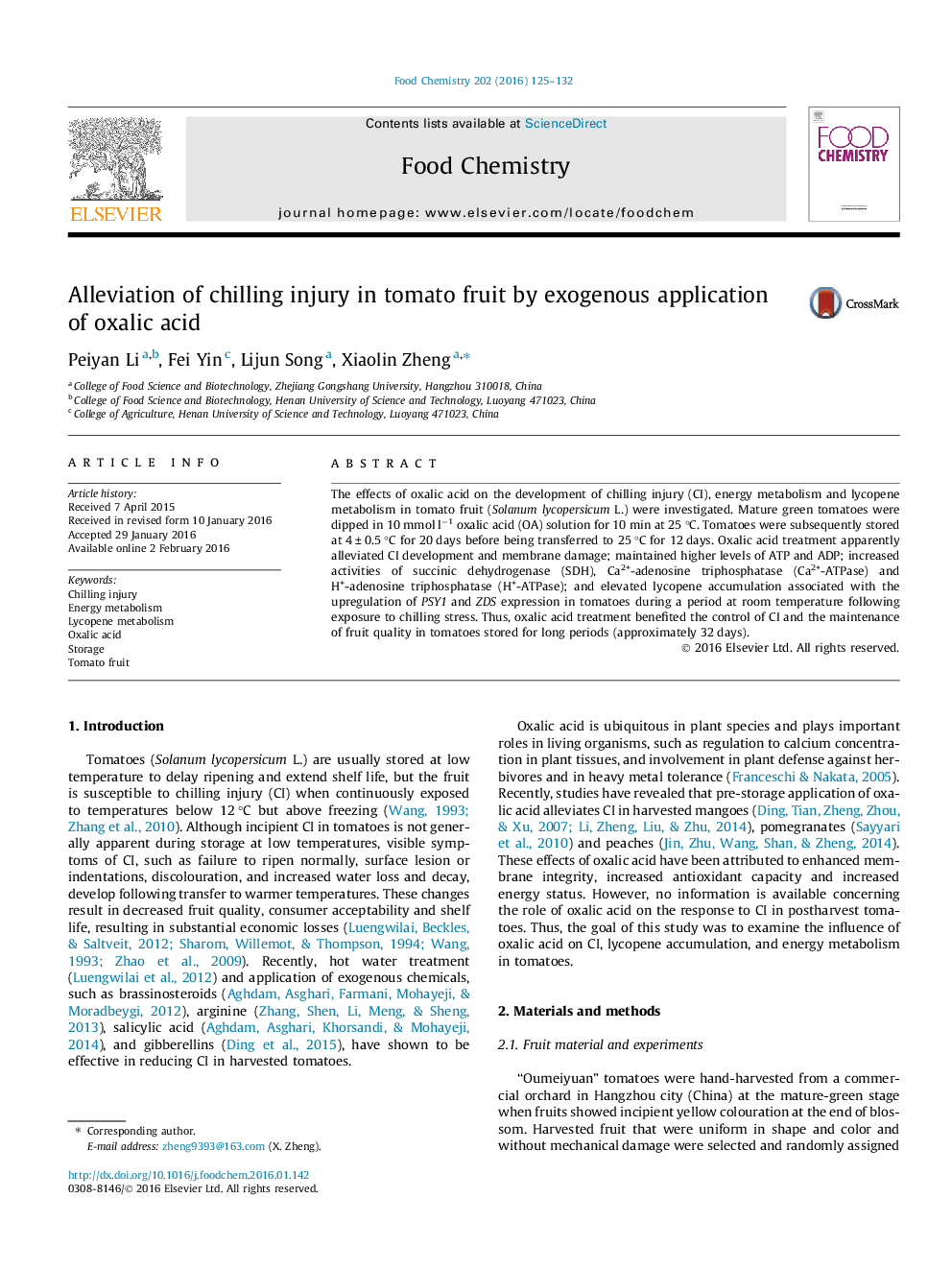| Article ID | Journal | Published Year | Pages | File Type |
|---|---|---|---|---|
| 7589028 | Food Chemistry | 2016 | 8 Pages |
Abstract
The effects of oxalic acid on the development of chilling injury (CI), energy metabolism and lycopene metabolism in tomato fruit (Solanum lycopersicum L.) were investigated. Mature green tomatoes were dipped in 10 mmol lâ1 oxalic acid (OA) solution for 10 min at 25 °C. Tomatoes were subsequently stored at 4 ± 0.5 °C for 20 days before being transferred to 25 °C for 12 days. Oxalic acid treatment apparently alleviated CI development and membrane damage; maintained higher levels of ATP and ADP; increased activities of succinic dehydrogenase (SDH), Ca2+-adenosine triphosphatase (Ca2+-ATPase) and H+-adenosine triphosphatase (H+-ATPase); and elevated lycopene accumulation associated with the upregulation of PSY1 and ZDS expression in tomatoes during a period at room temperature following exposure to chilling stress. Thus, oxalic acid treatment benefited the control of CI and the maintenance of fruit quality in tomatoes stored for long periods (approximately 32 days).
Related Topics
Physical Sciences and Engineering
Chemistry
Analytical Chemistry
Authors
Peiyan Li, Fei Yin, Lijun Song, Xiaolin Zheng,
